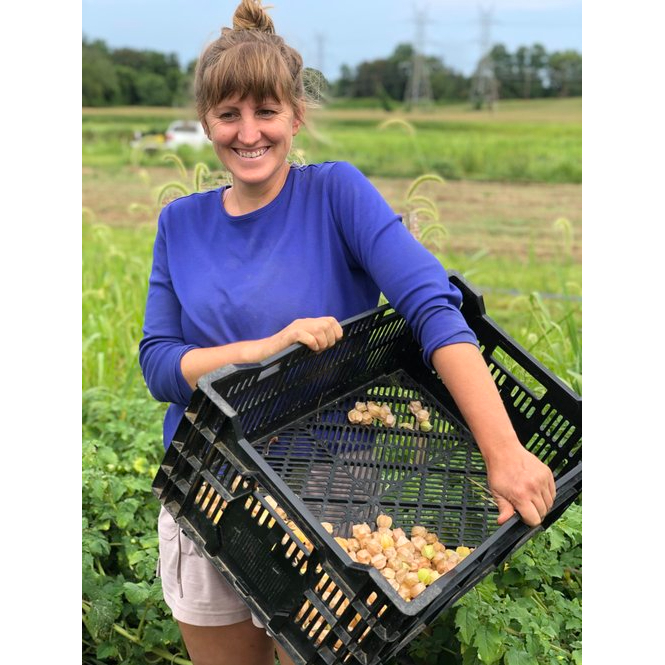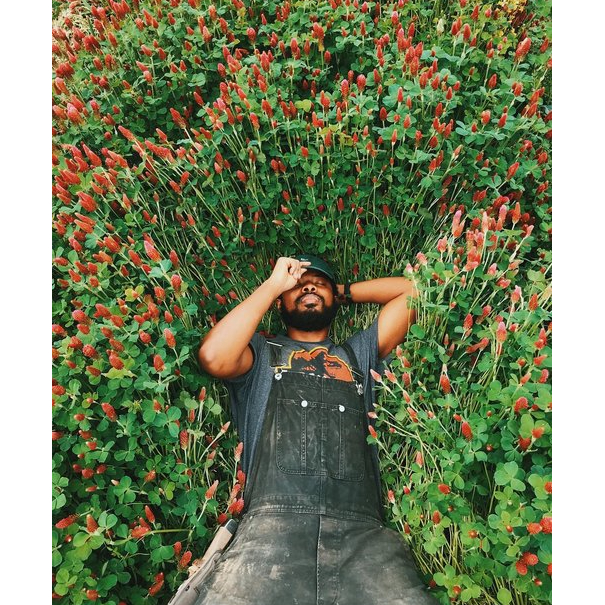Producer


Owl's Nest Farm
Address: 2612 Ritchie Marlboro Road Upper Marlboro, MD, 20774
Website: https://www.owls-nest-farm.com/
About Us
Owl's Nest Farm grows unique, delicious, nutritious, diverse vegetables, herbs, flowers and fruit on five acres just outside DC in Upper Marlboro, MD. They use organic practices to grow real food for our CSA members, farmer’s market customers, restaurants, and friends.
Practices
Soil fertility: They test their soil annually and amend it according to those test results. They maintain soil fertility by rotating crops, planting cover crops, and applying organically-approved fertilizers and micronutrients. The products they use include blood meal, fish emulsion, compost, lime, kelp, and a number of mineral supplements.
Weed control: They block weeds with landscape fabric (woven, reusable, plastic fabric), BioTelo (biodegradable plastic), straw mulch, and cover crops. When weeds appear among their vegetable crops, they remove them by hand, with hoes and other hand tools, and with tractor-mounted cultivators.
Pest control: They plant flowering farmscapes and cover crops to attract beneficial insects to the areas around our crops. They hand-pick pests and sometimes buy beneficial insects that we can release where pest populations are damaging crops. When necessary, they spray their crops with organically-approved controls, including Bacillus thuringiensis and Safer Insecticidal Soap. Rotating their crops also helps them control insect pests. They use electrified fences to deter deer, and sometimes trap groundhogs.
Plant diseases: They manage plant diseases by balancing soil nutrients, rotating crops, planting cover crops, and removing severely infected plants.
Weed control: They block weeds with landscape fabric (woven, reusable, plastic fabric), BioTelo (biodegradable plastic), straw mulch, and cover crops. When weeds appear among their vegetable crops, they remove them by hand, with hoes and other hand tools, and with tractor-mounted cultivators.
Pest control: They plant flowering farmscapes and cover crops to attract beneficial insects to the areas around our crops. They hand-pick pests and sometimes buy beneficial insects that we can release where pest populations are damaging crops. When necessary, they spray their crops with organically-approved controls, including Bacillus thuringiensis and Safer Insecticidal Soap. Rotating their crops also helps them control insect pests. They use electrified fences to deter deer, and sometimes trap groundhogs.
Plant diseases: They manage plant diseases by balancing soil nutrients, rotating crops, planting cover crops, and removing severely infected plants.
